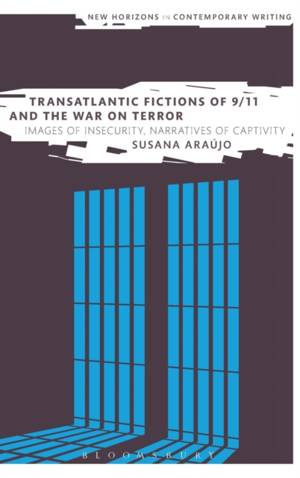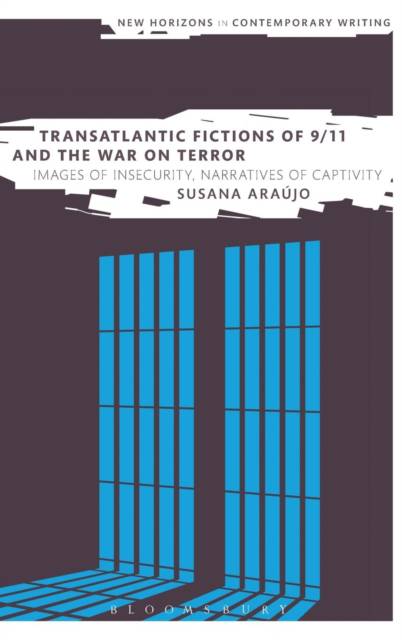
Bedankt voor het vertrouwen het afgelopen jaar! Om jou te bedanken bieden we GRATIS verzending (in België) aan op alles gedurende de hele maand januari.
- Afhalen na 1 uur in een winkel met voorraad
- In januari gratis thuislevering in België
- Ruim aanbod met 7 miljoen producten
Bedankt voor het vertrouwen het afgelopen jaar! Om jou te bedanken bieden we GRATIS verzending (in België) aan op alles gedurende de hele maand januari.
- Afhalen na 1 uur in een winkel met voorraad
- In januari gratis thuislevering in België
- Ruim aanbod met 7 miljoen producten
Zoeken
Transatlantic Fictions of 9/11 and the War on Terror
Images of Insecurity, Narratives of Captivity
Susana Araújo
€ 296,95
+ 593 punten
Uitvoering
Omschrijving
Extending the study of post-9/11 literature to include transnational perspectives, this book explores the ways in which contemporary writers from Europe as well as the USA have responded to the attacks on the World Trade Centre and the ensuing 'war on terror.' Transatlantic Fictions of 9/11 and the 'War on Terror' demonstrates the ways in which contemporary fiction has wrestled with anxieties about national and international security in the 21st century.
Reading a wide range of novels by such writers as Amy Waldman, Michael Cunningham, Frédéric Beigbeder, Ian McEwan, Joseph O'Neill, Moshin Hamid, José Saramago, Ricardo Menéndez Salmón, J.M. Coetzee and Salman Rushdie, Susana Araújo explores how the rhetoric of the 'war on terror' has shaped recent representations of the city and how "security+? discourses circulate transatlantically and transnationally. By focusing not only on 9/11 but also on the way subsequent events such as the wars in Afghanistan and in Iraq are represented in fiction, this book demonstrates how notions of "terror+? and "insecurity+? have been absorbed, reworked or critiqued in fiction. Araújo examines to what extent transatlantic relations have reinforced or challenged new fictions of "white western middle class captivity.+?
Reading a wide range of novels by such writers as Amy Waldman, Michael Cunningham, Frédéric Beigbeder, Ian McEwan, Joseph O'Neill, Moshin Hamid, José Saramago, Ricardo Menéndez Salmón, J.M. Coetzee and Salman Rushdie, Susana Araújo explores how the rhetoric of the 'war on terror' has shaped recent representations of the city and how "security+? discourses circulate transatlantically and transnationally. By focusing not only on 9/11 but also on the way subsequent events such as the wars in Afghanistan and in Iraq are represented in fiction, this book demonstrates how notions of "terror+? and "insecurity+? have been absorbed, reworked or critiqued in fiction. Araújo examines to what extent transatlantic relations have reinforced or challenged new fictions of "white western middle class captivity.+?
Specificaties
Betrokkenen
- Auteur(s):
- Uitgeverij:
Inhoud
- Aantal bladzijden:
- 232
- Taal:
- Engels
- Reeks:
Eigenschappen
- Productcode (EAN):
- 9781472508768
- Verschijningsdatum:
- 22/10/2015
- Uitvoering:
- Hardcover
- Formaat:
- Genaaid
- Afmetingen:
- 156 mm x 234 mm
- Gewicht:
- 503 g

Alleen bij Standaard Boekhandel
+ 593 punten op je klantenkaart van Standaard Boekhandel
Beoordelingen
We publiceren alleen reviews die voldoen aan de voorwaarden voor reviews. Bekijk onze voorwaarden voor reviews.









